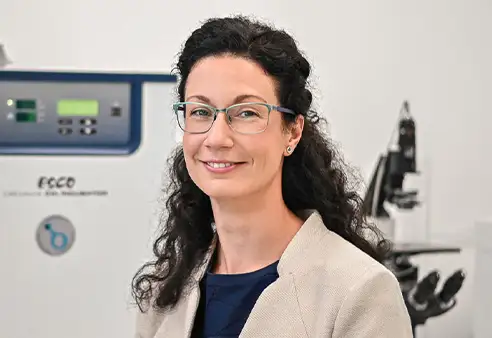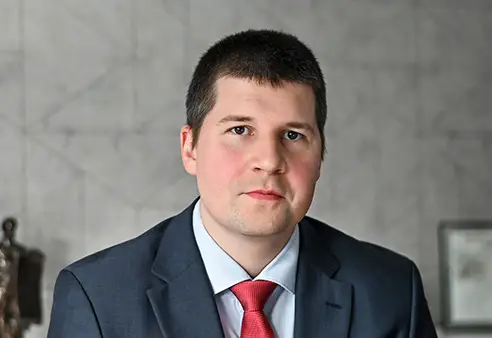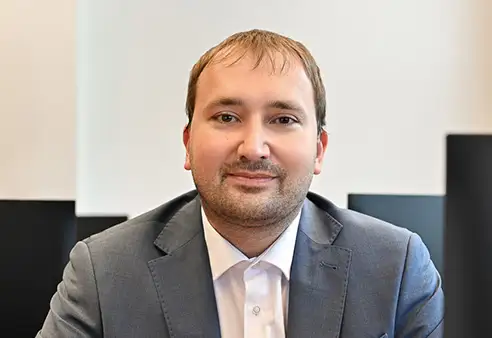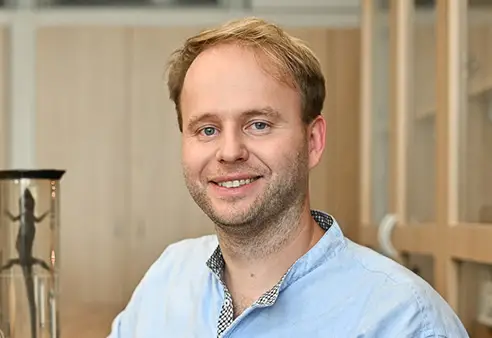Reducing CO2 emissions is one of the most frequently cited topics when it comes to combating the climate crisis. It is also one of the issues being addressed in research. Doc. RNDr. Miroslav Almáši works at the Faculty of Science of Pavol Jozef Šafárik University in Košice. He deals with the use and application of porous materials in energy storage, biomedicine, and environmental issues.
Miroslav Almáši is engaged in the preparation of new porous materials. These are absorbent coordination polymers that belong to a class of hybrid porous materials containing an inorganic and an organic component. The common characteristic of these materials is the presence of pores of various shapes and sizes, which can vary arbitrarily depending on the construction components used. Their preparation can be conceived as "nanolego." A large number of resulting models with diverse architecture and design can be prepared in any way by joining individual building parts. The new materials prepared in the workplace of Miroslav Almáši are named UPJS, an abbreviation for his university. Other porous materials are porous oxides, activated carbon, and graphene derivatives. These substances are then used in various combinations and modifications based on their purpose. Together with his team, he focuses primarily on their use in environmental issues, energy storage and biomedicine.
One possible use of their research is the absorption of heavy metals. "Colleagues in Mexico had a problem with excessive concentrations of fluorine and arsenic in drinking water. Our adsorbents are able to remove these substances effectively,” notes Almáši. "I am glad to see that our research can be used for the benefit of society." Similarly, other molecules, such as antibiotics and other medicines, can be taken out of the water. These are normally difficult to remove and can have negative health consequences.
Another important use of porous materials is in absorbing carbon dioxide from the air and storing it. Research by Miroslav Almáši and his team could be used to develop technology to filter the air directly from the environment. It would capture CO2 molecules, which could then be converted into, for example, methanol for further industrial use. This would provide more time to avert the climate crisis. In the field of gas storage and energy, he applies materials, such as hydrogen adsorbents, which are considered to be the green fuel of the future for motor vehicles and additives for lithium-sulphur batteries for electric vehicles.
They also investigate the so-called 'drug delivery system, i.e. the administration of long-release medicines, such as vitamin C, with a 24-hour release. The materials release the active ingredient gradually over longer intervals, reducing the frequency of administration of medicinal products from the usual 2 to 3 times a day to once a day. The surface of porous materials can be modified so that the drug begins to be released after exposure to UV radiation, a specific temperature, pH, or other stimuli in treating anti-inflammatory, oncological diseases and COVID-19.
Miroslav Almáši says that the field of chemistry was a clear choice for him. His mother was a chemical lab technician, and he spent a lot of time in labs as a kid. He studied chemistry at Pavol Jozef Šafárik University in Košice, where he works today. During his career, he visited labs around the world. He spent half a year in Groningen, in the Netherlands, under the leadership of Professor Bernard L. Feringa, a Nobel Prize laureate in chemistry. He also cooperates with Czech, French, Indian and Mexican colleagues.
"Fortunately, my work is also my hobby," says Miroslav Almáši. "Few can say that, and I'm glad I'm one of them." He likes watching a good TV show or film when he's not working. He is also a passionate traveller and wants to get to know new cultures and cities.



